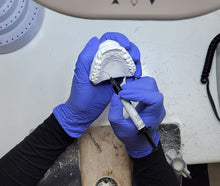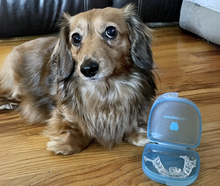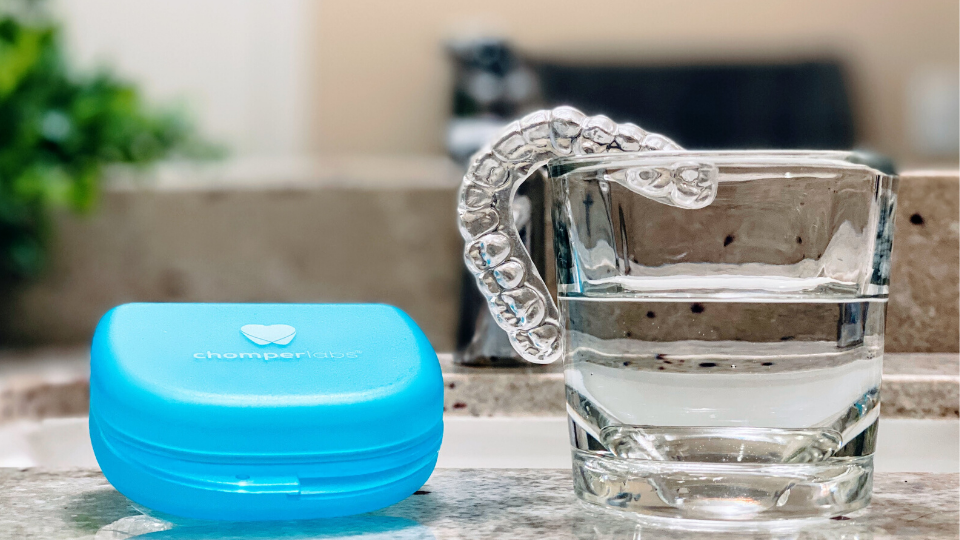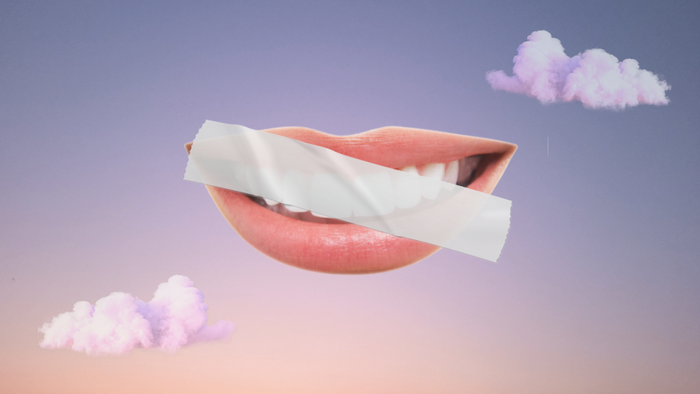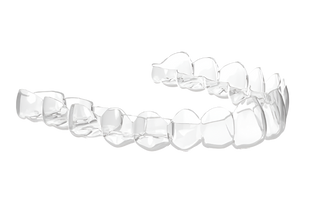If you wear a night guard to protect your teeth from grinding or a retainer to keep your teeth in place (or maybe you wear one that does both), you know how important it is for protecting your smile. You also probably know that it's important to learn how to clean your night guard or retainer to keep it at its best.
Cleaning not only keeps bacteria and stains at bay, but also extends the life of your mouth guard or retainer so it can continue to do it’s work.
With just a few simple steps that are easy to incorporate into your routine, you’ll be admiring your squeaky clean retainer or night guard, and your mouth will be thanking you.
Daily Clean Routine
Learning how to clean your mouth guard or retainer starts with a few everyday steps. These daily cleaning steps are easy to do and can help prevent those dreaded yellow stains and white spots from forming over time. Once the stains have formed they can be difficult or impossible to get rid of, so preventing them from happening in the first place is your best bet.
Did You Know: The yellow stains that begin showing on your night guard are due to the bacteria that naturally occurs in your saliva. Similarly, the white spots that might start popping up on your retainer (more commonly on wire and acrylic Hawley retainers) are caused by calcium deposits from your saliva.
Rinse It First Thing
As soon as you take your night guard or retainer out in the morning, give it a good rinse in cool or lukewarm water. You’ll want to avoid using hot water because it can warp the material.
Brush It With a Toothbrush
Next, lightly brush it with a soft bristle toothbrush. This will help to remove any saliva or plaque that may still be hitching a ride. Make sure to skip the toothpaste - harsh abrasives found in toothpaste may damage your night guard or retainer.
Let It Dry
One of the most important steps to help prevent bacteria build up is to let your mouth guard or retainer dry completely before storing it. This is because a moist environment is more likely to allow bacteria to thrive.
Use a cloth to absorb most of the water, then set it on a clean surface to air dry completely before storing it.
Store It Right
Once dry, storing your night guard or retainer in its case ensures that it stays clean and protected. It’s also a good idea to clean your case every few days. You can hand wash your case using dish soap, but don’t wash it in the dishwasher because the heat may melt the plastic. Make sure the container is completely dry because, as we now know, moisture is bacteria’s best friend.
Weekly Deep Clean
It’s a good idea to do a deep clean once a week to make sure your night guard or retainer is at its best. There are a couple of ways you can do that.
Use a Cleaning Tablet
Simply drop a cleaning tablet meant for use with dental appliances into a glass with water along with your night guard or retainer and let it soak for 10 minutes. You can get these over-the-counter at most drugstores, or go with our custom formulated cleaning tablets that kill 99% of odor causing bacteria and prevent discoloration and stains. Those fizzy bubbles will work their cleaning magic and leave a fresh minty scent too. After soaking, rinse in cool water and allow to dry completely before storing.
Use Mouthwash or Hydrogen Peroxide
If you don’t have cleaning tablets, you can pour a capful of mouthwash into a glass and dilute it with enough water to just cover your retainer or night guard. Allow it to soak for at least 10 minutes and up to 30 minutes.
If you don’t have mouthwash handy, hydrogen peroxide will work too. A mixture of equal parts hydrogen peroxide to water should do the trick.
Once again, after soaking, give it a good rinse then air dry completely before storing.
Pro Tip: Whichever soaking method you choose, make sure to not soak for longer than 1 hour as this prolonged exposure to liquid could potentially damage the material.
Help! My Night Guard or Retainer Is Stained
As we mentioned before, preventing stains in the first place with proper cleaning is always your best bet. But if you haven’t been keeping up with your cleaning routine (it happens), what can you do about it?
Depending on the type of stains you’re dealing with, your chances of getting rid of them may be higher or lower.
Yellow discoloration is unfortunately very difficult to get rid of once it’s there. Some night guard materials are more prone to yellowing than others. Soft night guards are particularly susceptible due to the more porous nature of the material. If that’s the case, we recommend using cleaning tablets more frequently to prevent the discoloration from getting worse.
If you’re noticing white deposits from calcium buildup, try soaking your retainer in a mixture of 1 part white vinegar to 3 parts water for 15 minutes. Afterward, use a soft toothbrush to scrub away any remaining calcium and then rinse thoroughly in cool or warm water.
Conclusion
Just like your teeth, your mouth guard or retainer needs care and cleaning to keep it at its best. Incorporating these steps into your routine will go a long way toward not only keeping it fresh and clean, but also giving it the longest life possible.
Feeling like your night guard is beyond revival? We can make you a fresh custom made night guard that’s the same exact quality as the dentist at a fraction of the cost. And the best part is you don’t even have to leave home. Or maybe the best part is the price. We’ll let you decide.

